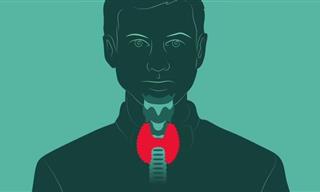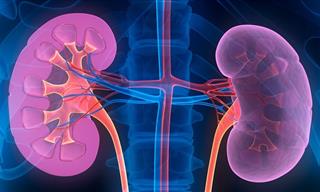1. Reduce your sugar consumption
Hormonal fluctuations often arise as a result of menopause, which can affect your body's ability to maintain stable blood sugar levels. Reducing your sugar intake is therefore a key component to weight loss and maintenance. Taking an all-or-nothing approach, however, is not the way to go about it. Rather, the key lies in reducing your sugar intake by consuming refined sugars, like those found in cookies and cakes, less frequently. Natural sugars, like that in fruit, should be your main source of sweetness.
2. Fat-free foods will not resolve your weight issue
While it may seem like the best way to tackle weight gain, reduced-fat foods are bad news for post-menopausal women for a couple of reasons. Firstly, they keep you from eating the healthy fats that your body needs to combat heart disease, and secondly, many fat-free foods, including salad dressings and peanut butter, are high in sugar, which is not beneficial for weight control, energy and overall health. As much as possible, stick to minimally processed, plant-based sources of fat which are rich in vitamin E, antioxidants and omega 3 such as those found in nuts, fish, and avocados.
3. Stop relying on techniques that worked in your 30s
While your tried-and-tested strategies may have worked in your younger years, discovering that your sworn-by methods no longer work on you post-menopause, may be discouraging. But, there is a good reason for this. Post-menopausal women frequently experience metabolism changes and tend to be less active than they were in their younger years. So, how can you fight back? Well, there are two ways to go about it. You can either cut your daily calories (preferably through working with an expert) to find your new baseline or make a concerted effort to be more active, focusing on building more muscle mass - your fitness plan may include walking 10,000 steps per day using a pedometer or doing resistance exercises with weights.
4. Too much calcium could be a contributing factor
Stocking up on calcium supplements of more than 1,000 mg per day, to improve bone density may not be the best idea. Excessive calcium intake has been found to be associated with kidney stones, constipation, and heart disease. A calcium-rich diet, rather than a supplement, should be your foundation - so opt for foods like dark green leafy vegetables and dairy (even nondairy milk like almond and coconut milk are fortified with calcium). Resistance-based exercises are also a great way to protect your bones, maintaining their strength.
5. Don't overfill your wine glass
The actual serving size of a glass of wine is 4 oz, or a half cup. This controlled consumption has been found to reduce stroke risk and lower breast cancer risk - both issues of high concern among post-menopausal women. In moderation, red wine is not bad for you, but, it is not the health food many have made it out to be.
6. Soy is not the miracle food you think it is
This plant-based source of protein and fiber has been found to contain compounds that mimic the effects of estrogen in the body. This is true in whole-food forms like edamame, tofu or miso. However, products labeled with 'soy' or 'soy protein' - are not necessarily healthy foods. Highly processed soy products are far more concentrated than natural soy and can be especially risky among women with thyroid issues or those with a history of breast cancer because their hormone-like properties can raise the risks of estrogen-based cancers. Therefore, when it comes to soy, stick with something you can actually recognize as food.
7. Don't start your day without an eating plan
Keeping track of what you eat and self-monitoring your food intake (with healthy habits firmly in place) has been found to reduce weight in menopausal women. A big part of self-monitoring is to have a plan of what you will eat each day, so that you do not find yourself hungry, reaching for the nearest source of calories.
8. Don't binge-eat to soothe your emotions
Transitioning into menopause can be an emotionally intense time for many women. Consequently, falling into the habit of eating to self-soothe can lead to weight gain, low energy, and unmanaged emotions. Of course, stress-eating from time to time is something everyone does, so cut yourself some slack. The key lies in ensuring that food is not your go-to solution to manage your emotions. A better alternative would be to exercise, talk to friends, volunteer in a community, practice mindful meditation, and yoga, and work with a therapist. These are all ideal strategies for emotional wellness.
9. Eating too frequently or not frequently enough
Hard-and-fast rules indicating how often you should eat do not apply to post-menopausal women. Some do best when they have breakfast, for instance, while some appear to do better by eating several small meals throughout the day, and others need to stick to three balanced meals daily - but research on the topic is mixed. The most important factor is consistency - eating in approximately the same way each day. This enables your body to become hungry (but not too hungry) and then feel full after eating. You'll know you're on the right track if your routine allows your body to go through this cycle multiple times a day.
10. Don't forget to drink
When your body is not hydrated, your sugar and salt cravings tend to be stronger than normal. As a result, women who are under-hydrated often reach for a snack, to the detriment of their energy level and weight maintenance. Rather than this, all their body would really need is a glass of water.
 Go to BabaMail
Go to BabaMail



























